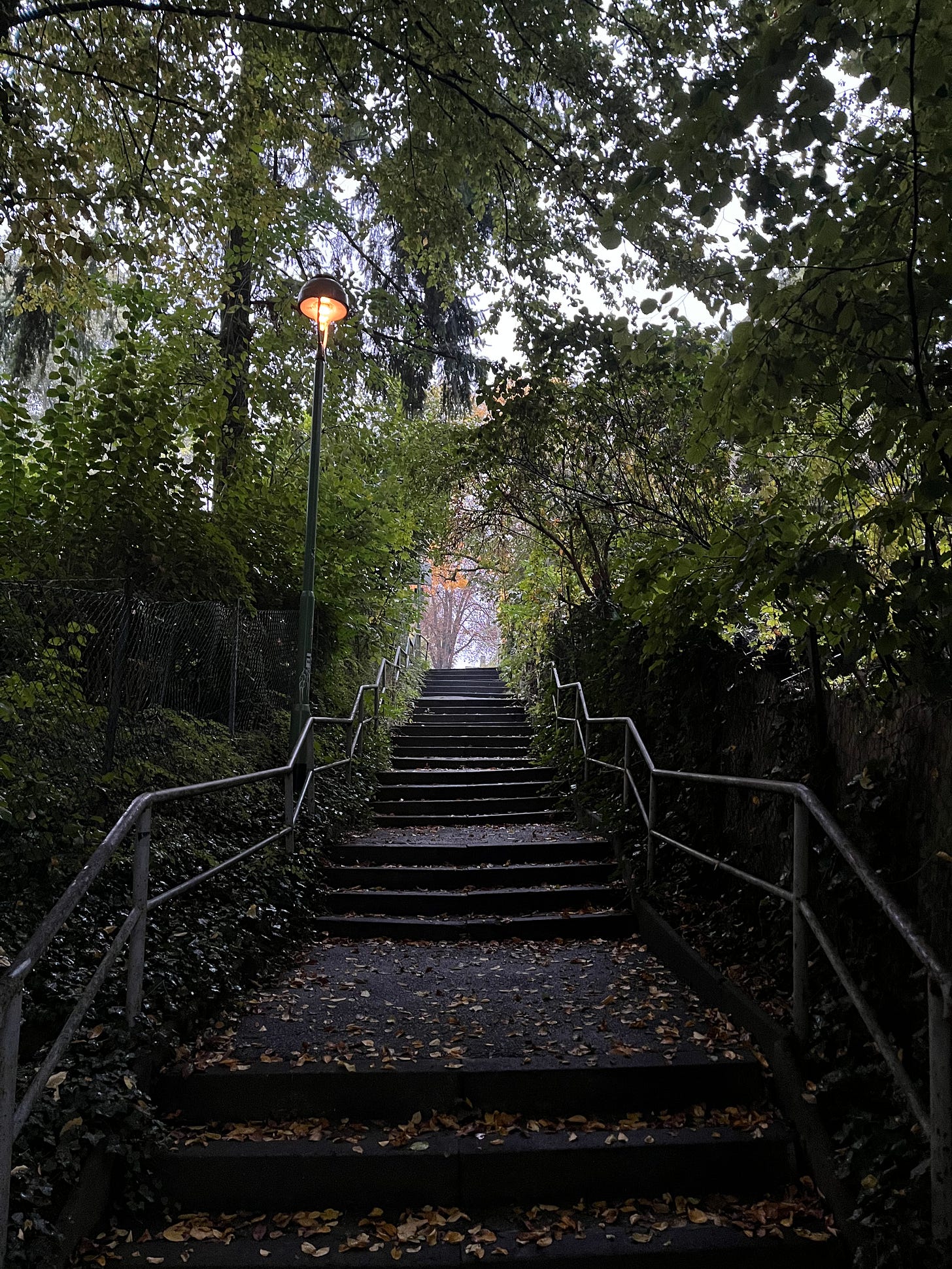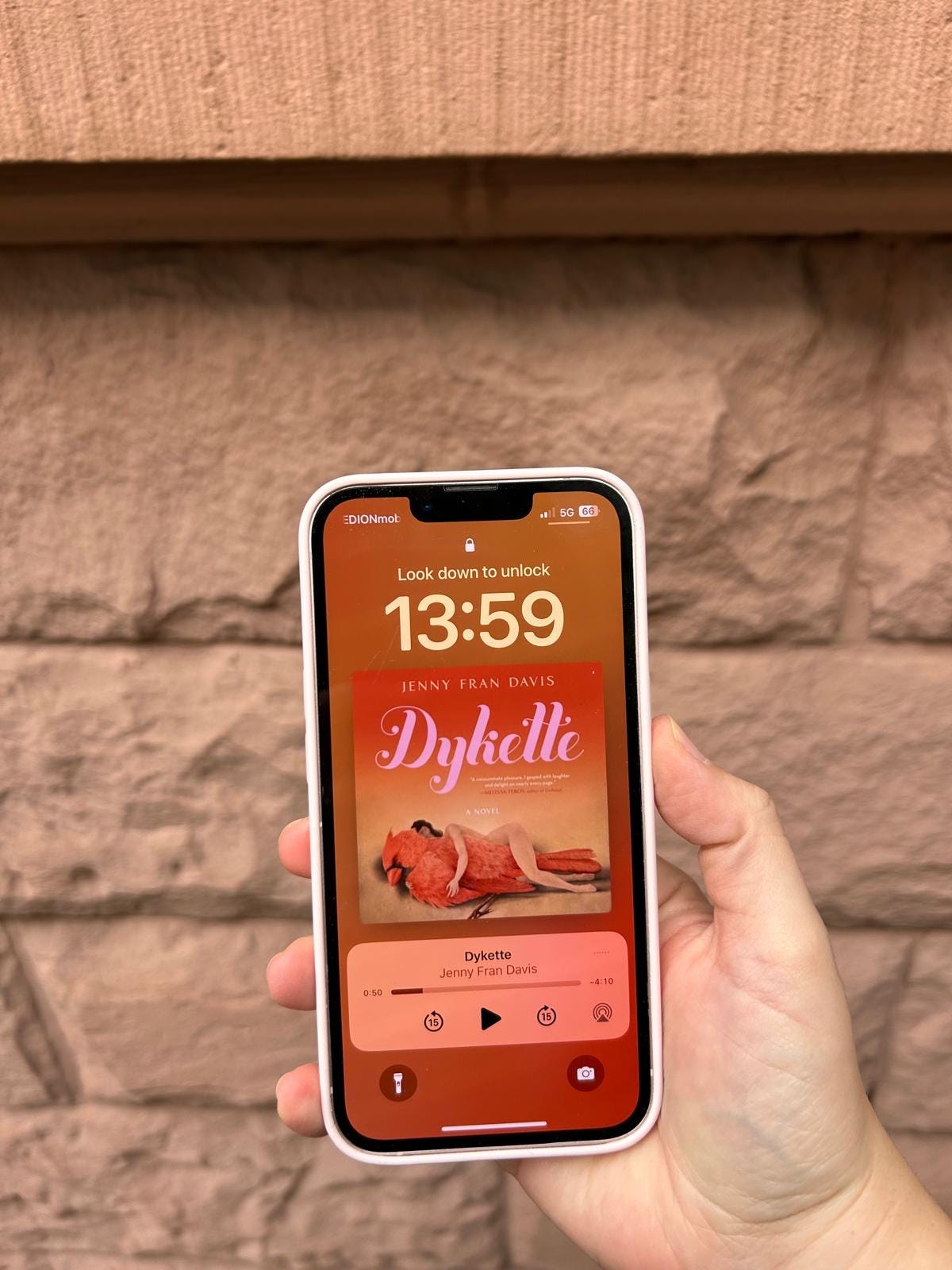Good Morning!
Autumn is here, finally, and like every year, I completely forgot how foggy autumnal mornings can be. I cannot, for the life of me, form realistic memories of (nor aspirations for) the seasons. Whatever season I am in, I tend to wish for the next one, but my wishes are always rose tinted. Clear, crisp, and dry autumn days; sunny and white (but otherwise dry) winter afternoons; cloudless and warm spring walks; and bearably warm and breezy summer nights. The pattern glares back at me: I keep forgetting about precipitation, like the moist droplets that tickle me as I walk through the wall of fog – and so I spurn mighty summer hailstorms; cosy rainy days in November, spent wrapped up in every blanket I own; and the wet cold of an early February sleet that freezes the marrow in my bones, remedied only by a warm bath. This autumn, I’ll try to savour each moment and stop reaching for time and seasons to pass. This autumn, I’ll try to remember it all, the wet leaves on those stairs I almost slipped on, the heavy clouds that reach into my morning walks, and the streetlamp artificially lighting my path when the sun needs a break.
Review – Dykette, by Jenny Fran Davis
I really, really wanted to love Dykette by Jenny Fran Davis, but I didn’t. I also didn’t hate it, though. Let me elaborate. Dykette centres a femme/butch couple, a relationship constellation rarely portrayed anymore in contemporary fiction, so it is special in that way. I was super interested in how Davis would go about this, seeing as most femme/butch stories are from between the 1950s and 1990s (although of course, femmes and butches continue to exist). The novel introduces three couples in total, though it isn’t clear if all of them identify in this way. They’re all creatives living in New York – and their self-absorbed privilege is unbearable. Davis isn’t sticking to the historically working class setting in which many femmes and butches came into their (erotic) genders back in the 50s and 60s. Instead, this story looks at how femme and butch genders can exist outside of their history, in the 21st century, in a digitised society, with a more vast vocabulary for trans/genders. The set up is great, I was absolutely intrigued and I’m always eager to think about how differently these genders are contextualised now. But the plot …
Sasha, our femme protagonist, and Jesse, her butch partner, are invited to spend the holidays in the countryside with Jules and Miranda, a slightly older couple, and Lou and Darcy, Jesse’s friends. The six spend some time at the house, away from the city, and spend their time drinking, smoking weed, and creating art (in the form of an extremely explicitly told SM scene acted out by Jesse and Darcy, for which I, as someone who is terribly afraid of needles, would have loved a little warning – it was A LOT and went on for quite some time). Sasha does everything she can to please Jesse and yet remains so self-involved that she is oblivious to his desires, at least if they’re anything other than sexual. She is jealous of Darcy both because she thinks Jesse fancies her and because she feels that Darcy’s femininity trumps her own. This second aspect of Sasha’s character actually interested me very much. Davis grasps how contemporary femme-ininity might struggle with patriarchy and gender norms, even in queer contexts. Sasha felt too big compared to Darcy, for instance, and Darcy generally seemed better liked and more popular to Sasha. But how Sasha tried to make up for this insecurity was painful to read: she pettily noticed that her fake Chanel bow was of better quality than Darcy’s and she thought that Darcy’s nipples are avoidantly attached to her breasts!!! (I don’t think any other sentence in any other book has ever stayed with me like this one, and so Davis successfully capitalises on my outrage.) Apart from this, Sasha and Jesse try to instigate a sexual encounter with Jules and Miranda but struggle to make it happen; Miranda is getting cancelled on social media because she said something bi-phobic on her podcast; and Jesse loses his phone in the woods.
Dykette was sort of no plot, just vibes – and the vibes absolutely worked for me. I really enjoyed the detailed descriptions of the characters’ style, the fashion references that I felt told me a lot about them as people, and I even grew to love the absurdity of Sasha’s internal monologue. The writing was so audacious that Dykette has absolutely solidified itself as a femme novel in its queerest form, but the story just didn’t keep me very interested. Still, this book was an experience!
Thanks for reading, see you next time!






this one made me lol